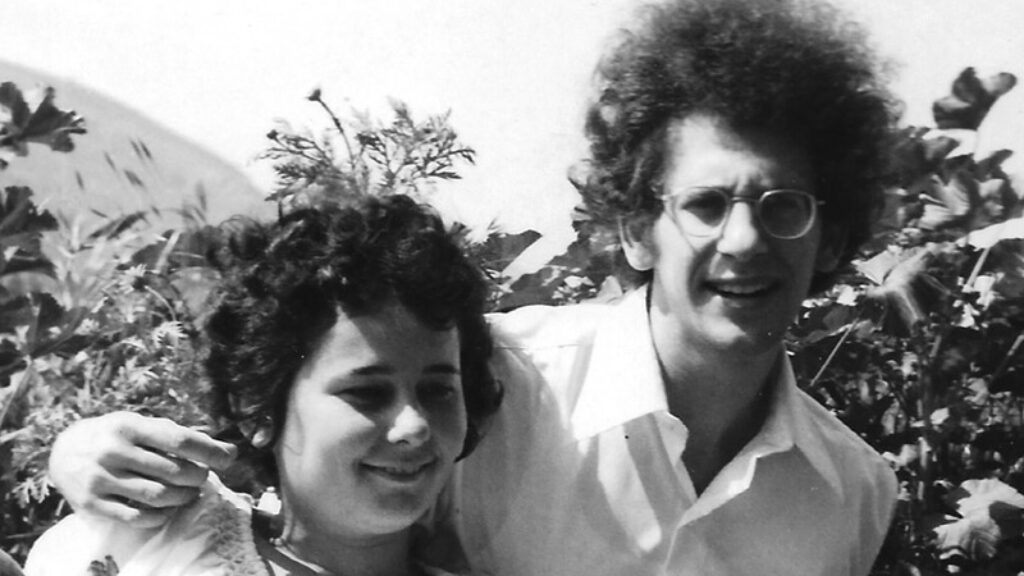Letters, Winter 2014
Cyprus Bound
It is a great tragedy that religion has all but been made redundant in Israeli society. (“Fathers & Sons,” Fall 2013) Our “either or” attitude with regard to observance, while softening over the years, has been replaced by indifference. It is with a heavy heart that in my own rabbinate I have counseled couples to obtain civil marriage in other countries and then return home and choose a “mesader kiddushin” to their liking rather than have to deal with the rabbinate. This is just one example that can be made concerning the state of Jewish observance in Israel.
Eytan Keshet, via jewishreviewofbooks.com
A Salter Exchange Between Readers
“Whatever its source, such artifice and obfuscation can make Salter’s work, at its weakest, seem phony, a fancied depiction of a world that exists only in the minds of a small community of East Coast WASPs. In this mode, Salter most resembles Ralph Lauren, another name-changing Jew who internalized the lie and the fantasy. Like Lauren, né Lifshitz . . .” In “The Hunter” (Fall 2013) Rich Cohen beautifully captures my view of James Salter the novelist. While some of his paragraphs seem tantalizing the whole isn’t.
Cohen’s use of analog to Isaac Babel is less convincing. Babel was a great artist, and he didn’t hide his Jewishness, not even from the Cossacks. As a convinced Bolshevik, like Trotsky, he believed that anti-Semitism was a bourgeois phenomenon not applicable to Lenin’s Russia. God, were they wrong. I love Babel’s art; his short stories have what James Salter said of an Italian woman in Burning the Days (his only readable book), the “ring of truth.”
Jacob Farber, via jewishreviewofbooks.com
Part of the greatness of both Isaac Babel and James Salter is their ability to be both of their time and yet transcend it and so create both a palpable sense of the era in which their characters are alive (with, yes, societal prejudices intact) and the language with which to speak this truth to future generations.
What those who accuse Salter of anti-Semitism ask is that he’d have made a better world than this one is, a Rodney King one resembling some cornball Christian heaven where everyone simply gets along. To judge James Salter on the basis, solely, of how good a Jew he is sounds strangely like what Hunter S. Thompson said about the boringness of baseball: a bunch of Jews arguing on a porch. This isn’t literary criticism, rather—like the “feminist” critics who have accused Salter of thought crimes against women because of the actions of his characters—it’s extra to the work itself.
If you’re a close reader of Salter, as I am (and I’m also a close reader of Babel) you find him positioning his characters to the side of any and all groups, including the most basic group, which is the heterosexual couple, in which these often tragic characters are trying to find respite from an existential loneliness. I suggest everyone re-read the magnificent story “American Express,” which is about two men—lawyers, sons of lawyers (and Jewish)—and money and women and power and morality. It culminates in this astonishing line: “They were like thieves.” Morality in every great writer is complicated because that’s how it is in real life.
Jane Vandenburgh , via jewishreviewofbooks.com
“What those who accuse Salter of anti-Semitism ask is that he’d have made a better world than this one is . . .” I don’t know who Jane Vandenburgh has in mind, and I don’t know what kind of question she is asking. For my part, I don’t think of Salter as a great writer (his anti-Semitism has nothing to do with it). Dostoevsky was an anti-Semite and a great writer nonetheless. On the other hand, Isaac Babel was a great writer no matter what one thinks of his private life. I usually don’t bring up a writer’s prejudices. In this case it is legitimate because I am responding to the reviewer’s assertion that Salter’s anti-Semitism made him a great writer. I took issue with this strange and unproven view. Bringing up “the ‘feminist’ critics who have accused Salter of thought crimes against women” doesn’t prove anything.
Jacob Farber, via jewishreviewofbooks.com
Time to Proselytize?
Sylvia Barack Fishman applies characteristically precise language to the rarely precise discussion of interfaith marriage. (“Exogamy Explored,” Fall 2013) She argues correctly that a Jewish education and various demographic factors provide a barrier against such marriages. The problem with this approach, however, is not its correctness. It is that Jewish parents aren’t providing their children with such an education or promoting Jewish friendship circles and so on. Non-Orthodox schools are closing, not expanding.
Naomi Schaefer Riley’s suggestion in the book under review, ’Til Faith Do Us Part, is not helpful either. As Fishman puts it, “One Mormon habit Schaefer Riley urges Jews to adopt is earlier marriage and childbearing.” Of course, like Jewish education, that’s a wonderful idea. But American Jews won’t marry earlier and have more children, so as a policy prescription such an exhortation is at best only marginally useful.
What can be done that fits with the data? There may be a hint in the religious fluidity inherent in the large number of interfaith marriages. A 2009 Pew study suggested that a staggering half of Americans have changed their religion. It is this fact that is useful for the Jewish people.
It is time for a more active effort to welcome converts to Judaism than the Jewish community has previously undertaken. Such an effort fits into the current American religious landscape. Larger numbers of converts would increase potential Jewish marriage partners. An active program to welcome converts provides a significant way to transform what would have been an interfaith marriage into a Jewish marriage.
I don’t know whether such an effort will be effective or not, and I am certainly not suggesting that this conversionary effort should be a substitute for all the valuable suggestions Fishman makes, especially the focus on Jewish education. But if what we are doing isn’t working, perhaps it is time to supplement those efforts with another approach.
Lawrence J. Epstein, Stony Brook, NY
Suggested Reading
Scenes of Jewish Life in Imperial Russia
What was life like in pre-revolutionary Russia? It certainly did not take place in an unchanging shtetl.

The Devil You Know
Alvin H. Rosenfeld in 2013: “How aggressive this new antisemitism is likely to get and, ultimately, how destructive it will be if it proceeds unchecked are open questions.”

Love, Counter-Historical Style
Love letters to Israel, Judaism, and each other from Rachel and David Biale.
Faith in Doubt
Can doubt provide the space that allows secular and religious Jews to coexist in Israel?
Comments
You must log in to comment Log In